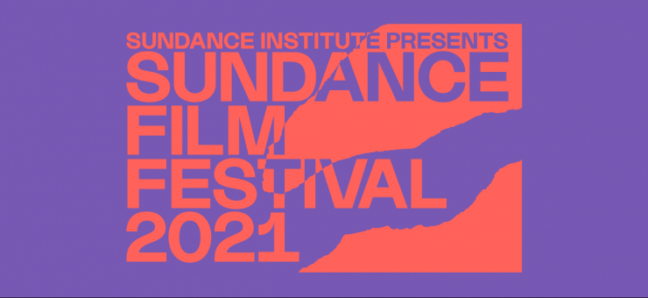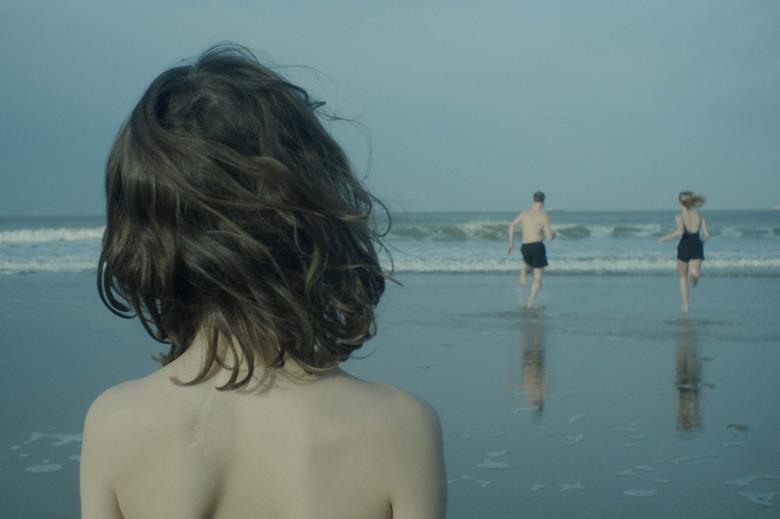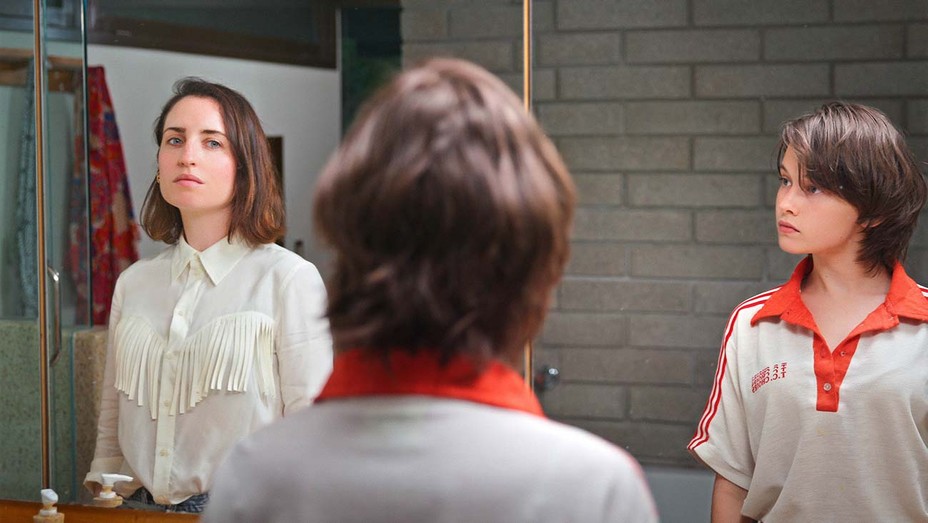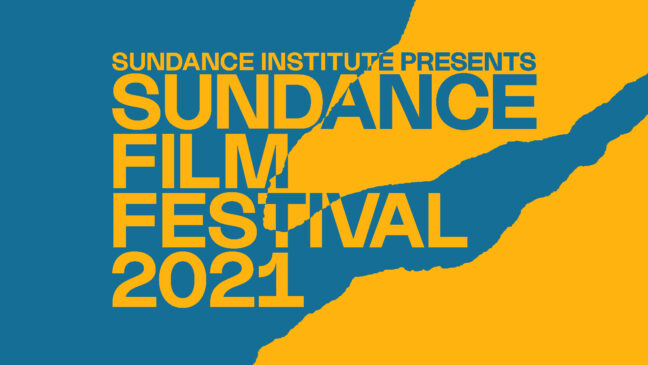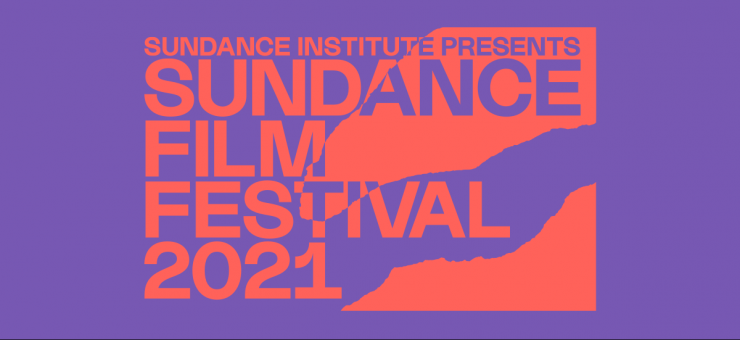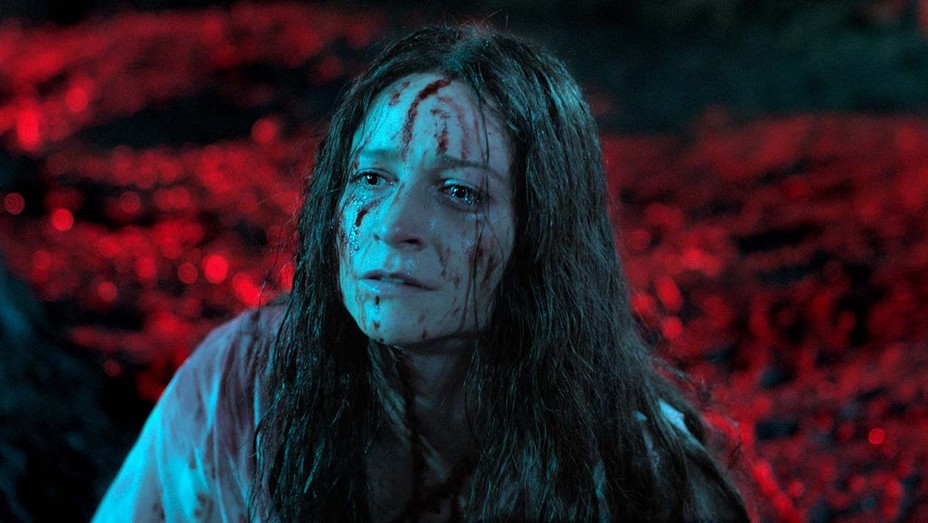
So in the real world, there were bus rides and snowy car windows to clean and pizza slices and bottled water from The Library Theater, while waiting in line in the snow, or scrounging for tickets for the bigger premieres at the largest venue, Eccles. Not to mention driving back and forth from lot to condo, making sandwiches at 2 am for the next day of films which started at 8 a.m. There were in other words, interruptions from the dreamworld of cinema to the real negotiations of traversing the film festival, grocery store runs, a party or two thrown in. Sometimes we would see 5 or 6 films each day, but there was always that necessary connection outside the screen.
Viewing at home – particularly with the welcome three-hour grace time to start a premiere, and the ability to watch the Q & A following a film on Zoom on my phone while I made a sandwich or a hot chocolate in my kitchen, the dream state continues unabated. Instead of moving from theater to theater, I move between one of our two TVs or switch between iPhone and laptop – that’s my four venues this year.
So I have managed to catch 13 movies Saturday and Sunday, and live entirely in the waking dream that is film – without getting quite literal “cold feet.”
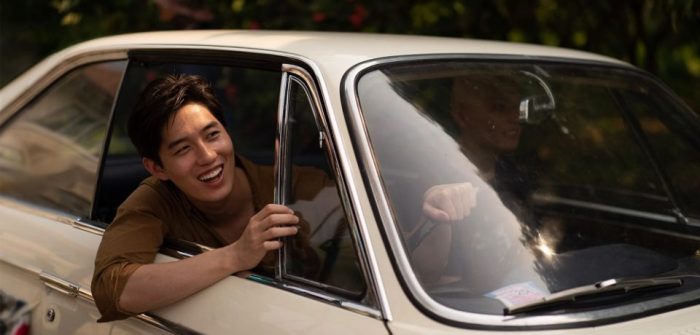
My favorite film viewed this weekend was One for the Road. It’s a beautiful love poem of a film with a rich, highly narrative story line. The love is that of friends, lovers, landscape, cocktails, and family, in a lush visual tour de force. Structured in dreamy flashbacks around a road trip across Thailand, director Nattawut Poonpiriya’s film is an emotional and magical drama with steady injections of both humor and pathos. The two main characters are New York bar owner Boss (Thanapob Leeratanakajorn) and his long-time friend Aood, played by Natara Nopparatayapon. An epic mosaic of a story, this is one of those films that makes watching movies somewhat of a miracle.
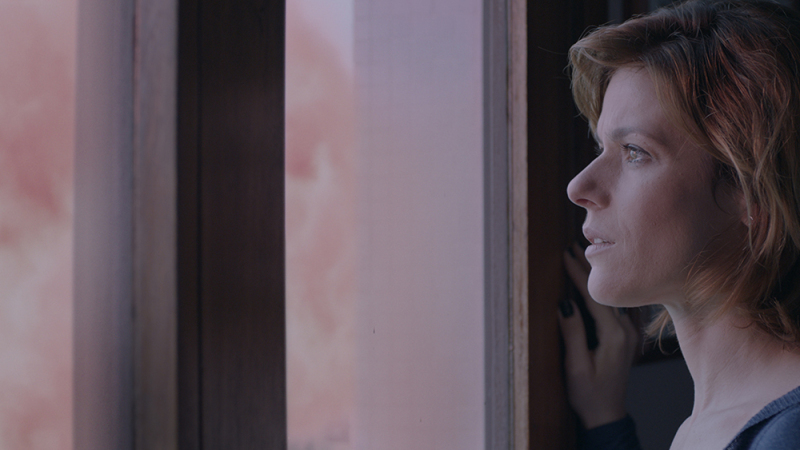
Another favorite was The Pink Cloud, a Brazilian film presciently written in 2017, shot in 2019, and yet somehow plugged into the zeitgeist of the current pandemic and at-home quarantine. This is an intimate relationship story inside a larger story of human relationships and connection. Iuli Gerbase’s first feature as a director is sleek and gorgeous, with stellar performances by Renata de Lélis and Eduardo Mendonça. The two begin the film as a couple forced to quarantine together after a one night stand, and ends in the culmination of a ten-year relationship, now with their own child, all while a death-bringing gaseous pink cloud hovers overhead. Eerie and poetic.
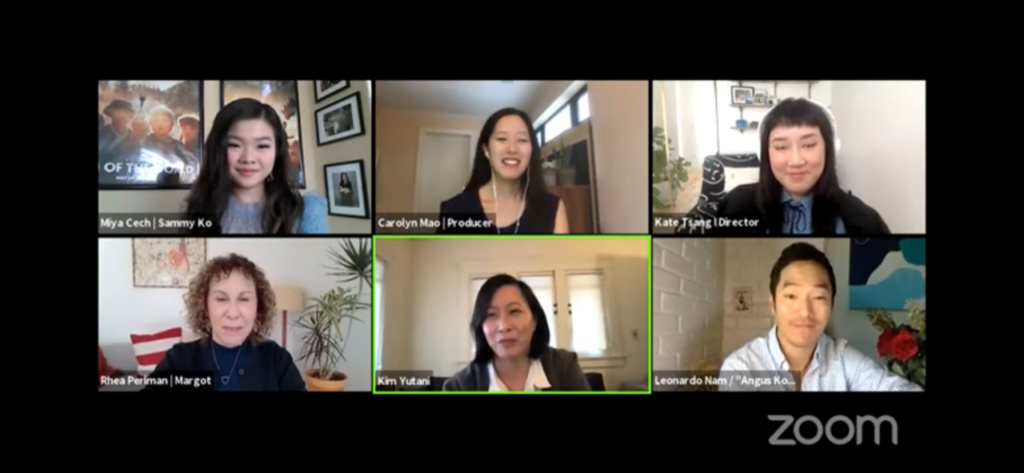
More conventional but nonetheless delightful was Marvelous and the Black Hole (Q and A above). A contemporary coming of age story rife with literal and figurative magic tricks, the tale is as old as time but nonetheless made fresh with elements of animation, and a winning young Mia Cech as 13-year-old Sammy.

Kate Tsang’s moving dramedy is maybe a bit predictable, but it nonetheless drew tears and smiles. The charming addition of Rhea Perlman as magician Margot is key to the heart of the film.
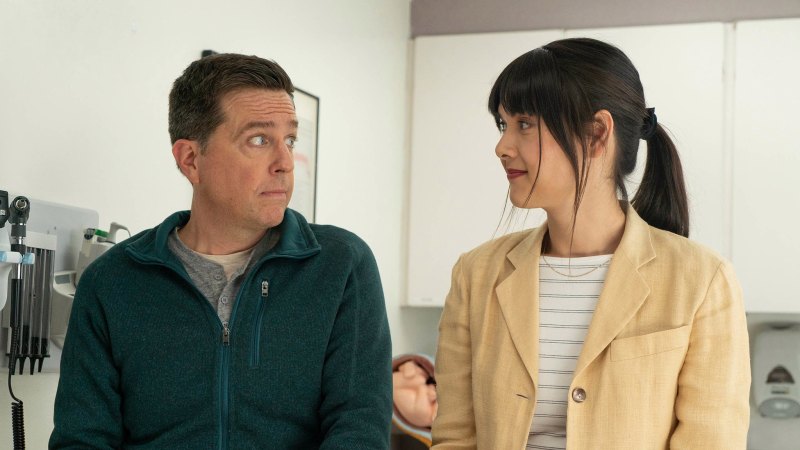
Together Together could likewise be termed somewhat predictable – surrogate mom bonds with the baby’s daddy, in a warmhearted platonic friendship. The somewhat open-ended conclusion was a bit unsatisfying, but I’m being picky. This film, too was a mix of laugh and tear-inducing, as loving as Ed Helms’ baby daddy Matt, whose biological clock is ticking. Surrogate Anna (Patti Harrison) is 26 and using her fee to pay for a planned college program in Vermont. Director Nikole Beckwith conveys a lot of love between the pair; in a smart script that did remind me of a favorite film viewed in September at the virtual Dances with Films Festival, Milkwater.
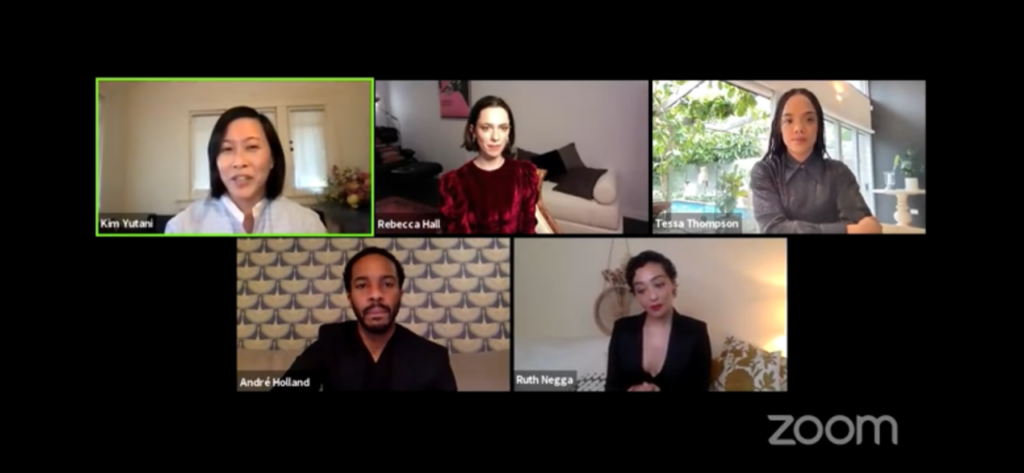
Passing (Q and A above), with the astonishing Ruth Negga and Tess Thompson as childhood friends meeting again in New York City in the 1920s is a lustrous black and white film under a sure directorial hand. Rebecca Hall’s film is based on Nella Larsen’s 1929 novel, about pretense in every sense of the word.

Chiefly dealing with the pretense between two black women – one pretending to be white, one to be happily married — but also women pretending to want heterosexual-only relationships, the film walks a delicate line well. Hall and her exceptional cast walk it perfectly.
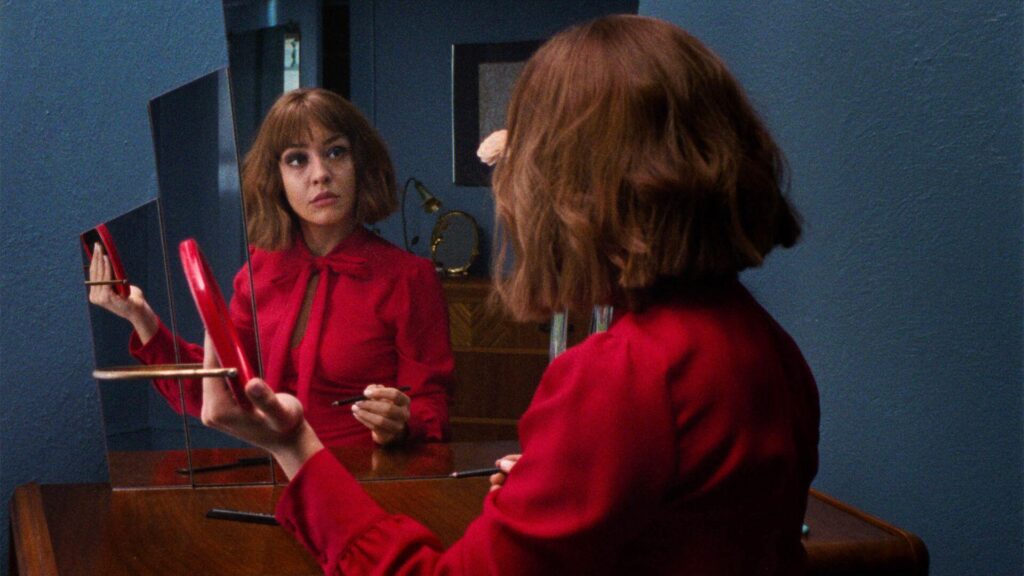
Filmed in lo-fi 16mm with a vivid, 80s slasher-film vibe, what’s passing for happiness in Superior is barely happy at all. A seemingly harmless deception between estranged, barely reunited twins turns deadly in a continuation of characters first presented in a short by director Erin Vassilopoulos in an earlier Sundance incarnation. Casting twins Alessandra and Ani Mesa (Alessandra also co-wrote the film) in the leads adds to the level of heightened realism turned surrealism; dark comic touches add levity; a chilly Halloween-setting adds to the camp. Didn’t quite work for me in a story that ultimately could have used a little more meat on its twisted bones.
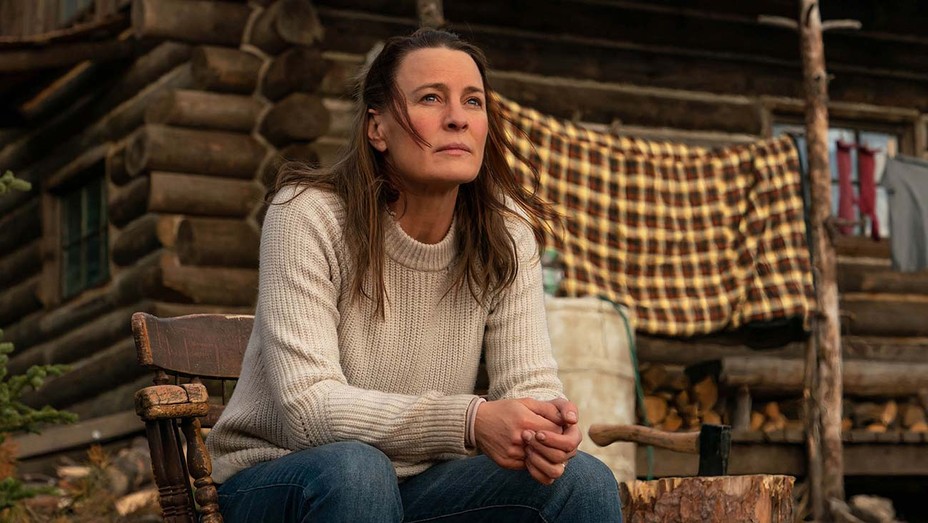
At the beginning of Robin Wright’s deeply felt Land, the beauty of the raw Western frontier led me in to a story of a woman recovering from and/or wishing to annihilate herself because of a terrible loss. At first Edie, as played by Wright, seemed like a walking cliche, willfully and frustratingly bent on self-destruction. But her life-saving and burgeoning friendship with a salt-of-the-earth hunter/rescuer (Demián Bichir) also rescues the film, making it into a solid heart-warming weepy by the end of the third act. Shot lushly in Calgary, Land has already has secured distribution through Focus Films.
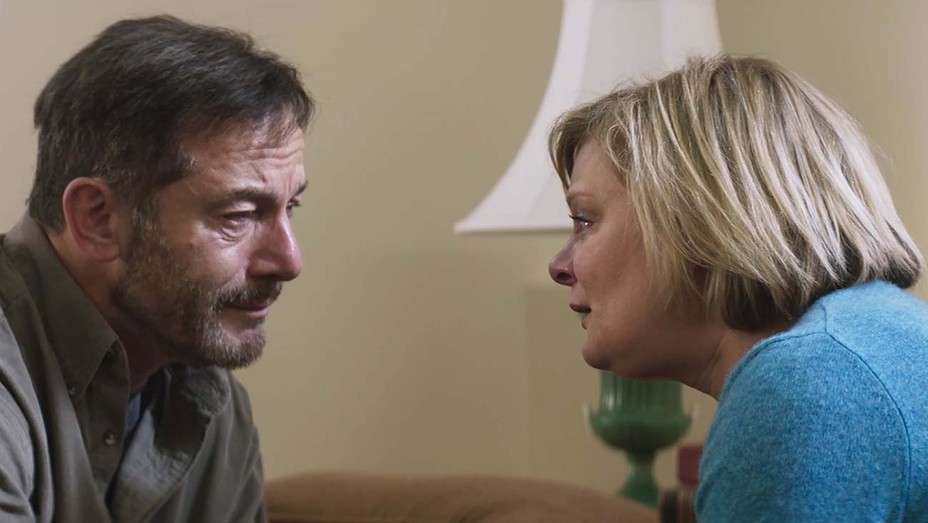
The tragic circumstances of Mass also deals with profound loss, in a limited setting four-hander carried by brilliant acting and incisive directing. Dark and sad, this tragedy too felt overly familiar, evoking memories of a Sundance film I saw in 2014, Rudderless, which dealt with a similar topic in a more surprising way. However this is nonetheless a solid film with vital performances from Jason Isaacs, Reed Birney, Martha Plimpton, and Ann Dowd.
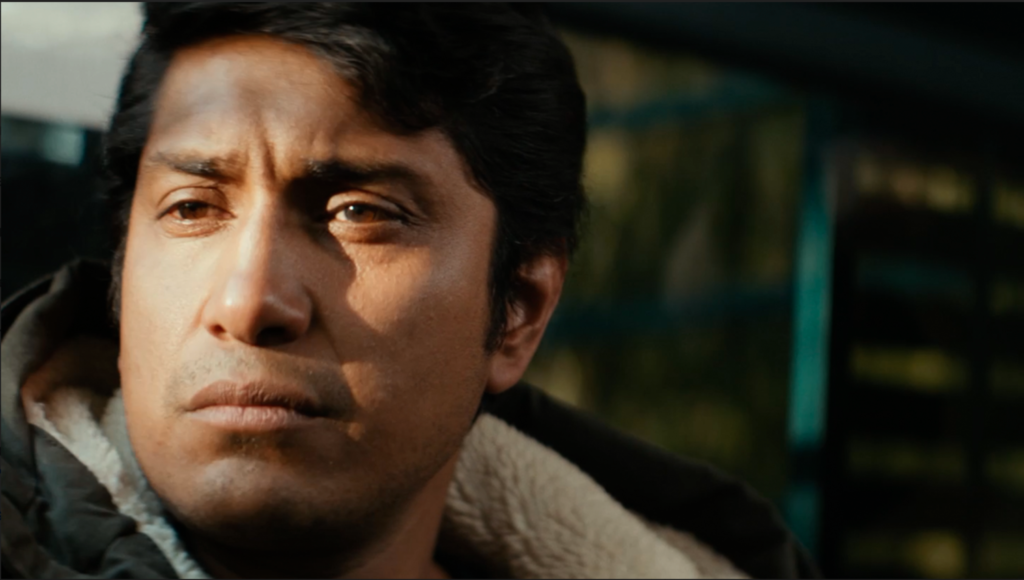
The winner of this year’s 2021 Alfred P. Sloan Feature Film Prize is Son of Monarchs, a film as interesting to dissect as the butterflies studied by the film’s protagonist, Mendel (Tenoch Huerta). The mythology as well as the science of the butterflies, and their symbolic presence as souls of the dead visiting on Dia de las Muertes, gives this film a haunting resonance. Director Alexis Gambis’ presents the dichotomy of Mendel’s own metamorphosis, from orphaned boy to scientist, ably traversing territory between rural Mexico and the heart of New York City. If the story ultimately feels not quite fully realized, the soul of the film nonetheless soars, giving flight to the philosophical questions within it.
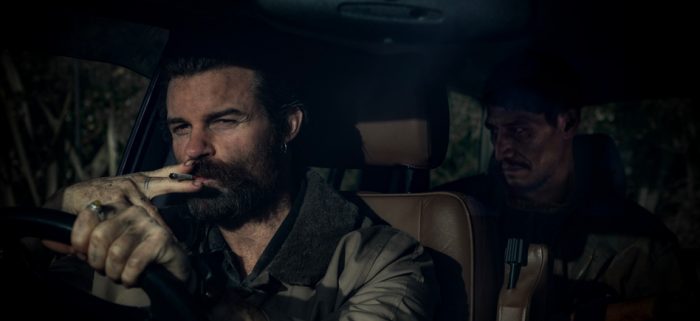
James Ashcroft’s Coming Home in the Dark might just exemplify the difference between an American versus New Zealand worldview. An American film would’ve erupted in a violent fight from the get-go, a gory revenge, whereas this taut, terribly grim thriller about a family attacked by two violent men, goes for the psychological pain as much as the physical. Chilling and tense, the film had a sense of terrifying loss woven into the script from the first shot of a stunning if barren landscape. But I kept rooting for something that never happened, and while recognizing the power of the bleak film unfolding on my screen, I never got the visceral resolution I craved.
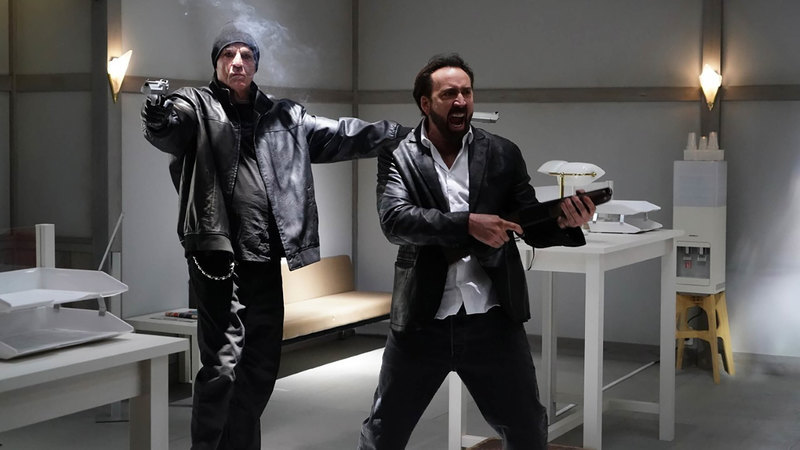
Japanese director Sion Sono takes bleakness to an entirely new level of the surreal in Prisoners of Ghostland. The film stars Nicholas Cage as a robber unjustly accused of murder and locked in a leather suit wired to cause his testicles to explode (yes, you read that right). Cage must rescue a girl named Bernice, a faux “granddaughter” of an evil pimp “governor” (the always fine Bill Mosley) in a futuristic world. This world mashes up Mad Max rip-offs, spaghetti Westerns, samurai action films, and sci-fi schlock in a visually arresting but nonsensical apocalyptic fairytale. If this had run 80 minutes instead of 2 hours and 15 minutes, it might’ve been more fun; as it is, its a bloated meandering slog redeemed only but its pop-art visual aesthetic.
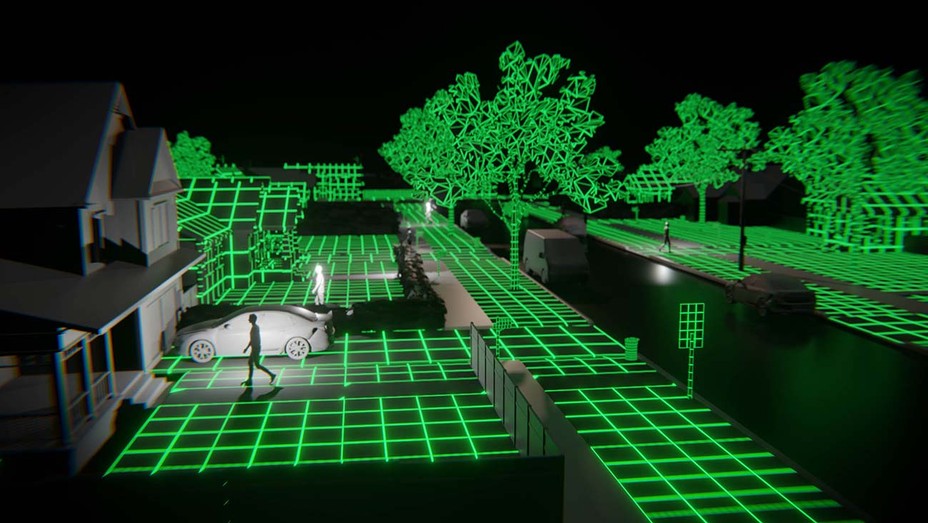
Prisoners made a good companion piece to another overly-long slog through the surreal, the virtual reality of A Glitch in the Matrix. I wanted to like this documentary about proof that we are living in a simulation (if so, I would prefer not to live in one created by Sion Sono), but ultimately it went nowhere except into troubled minds hovering on the verge of schizophrenia. Rodney Ascher, who helmed the provocative Sundance doc Room 237 (a riff on The Shining) ably tries to shed some light on the idea that we are all part of some greater intelligence’s big video game, or living in one of several alternative universes, but unfortunately only seemed to prove the great influence of The Matrix on certain beleaguered individuals.
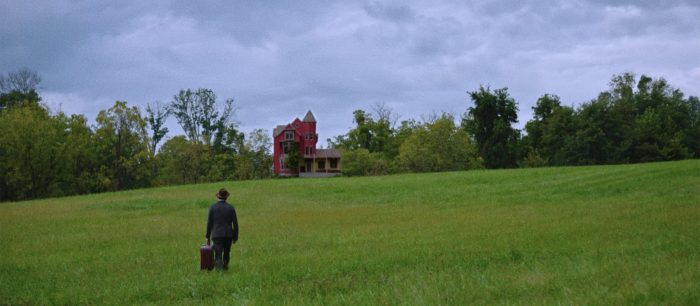
And finally, the visually inventive Strawberry Mansion jumped the shark into viewing oblivion for me, with an arch, surreal story and sets that seemed lifted from art installations at the Bombay Beach Biennial, 2019. A tax man who taxes memories on VHS tapes in an analog futuristic weird world meets a cosmically sweet old lady. Big points for visual style on a mini-budget; 0 points for story, substance, or reason to be longer than 10-minutes (which it was.)
Summing up: some amazing viewing experiences this weekend of spectacular films – The Pink Cloud, One for the Road; deeply enjoyable ones, including Passing, Magnificent and the Black Hole, Sons of Monarchs, and Together Together; and some definite misses for me such as Prisoners of Ghostland — but even the misses were part of an overall cinematic feast.
- Genie Davis


